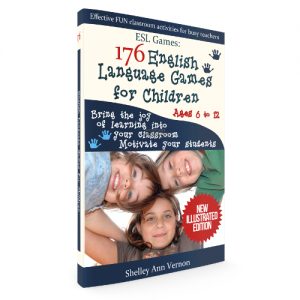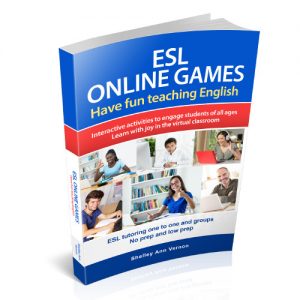An easy vocabulary and grammar game for children
Here is a versatile classroom vocabulary game, for all class sizes, from a handful of children right up to a large class. This game also works well with adults. It is ideal for drilling new vocabulary or grammar, in a fun way, of course!
Relay Race: How to play
Put your class into teams of approximately five players per line. The one at the front has a picture of, say, rain. On go, the first player in each line asks number 2 in the line: ‘What’s the weather like?’ Next, number 2 replies with, ‘It’s raining,’ and takes the picture. Then number 2 turns to number 3 and asks, ‘What’s the weather like?’ Number 3 says, ‘It’s raining,’ takes the picture, turns to number 4, and so on. Finally, the rain image reaches the end of the line.
The winning team is the one that finishes first. However, warm everyone that you will disqualify teams that fudge it!
Tips to make the game a success
Players must pronounce sentences correctly, and accuracy should not be abandoned for speed. To ensure this, name a referee for each team. This quality control referee must belong to another group so that they will referee properly. Swap them around, sharing this task among the stronger students.
Instead of a picture, pass an object down the line. That works well because it’s more fun for students to see the message’s progress in tangible form.
If this game does not work, you probably need to simplify the language or drill it more with another game first.
Language ideas to use with this game
Adapt this classroom vocabulary game to any language, from simply naming the item and passing it down to complete sentences with a particular verb tense or structure. Ideas are:
‘I am Shelley, and you are Maria.’
Jane continues with, ‘I am Maria, and you are Ali,’ etc.
Shelley: ‘I love ice cream.’ Maria: ‘She/Shelley loves ice cream, and I love chocolate.’
Ali: ‘She/Maria loves chocolate, and I love ice cream,’ etc.
Shelley: ‘I like ice cream. What do you like?’
Maria: ‘I like chocolate. What do you like?’
Ali: ‘I like cake. What do you like?’
Small group version
Here’s a way to play Relay Race with only five children. Let them pass the language down the line once and time them with a stopwatch. Then let them do it again and try to beat their previous time. Or instead of a stopwatch, walk across the room from one wall to the other – they have to finish before you reach the other side. The first time, saunter over there. Gradually speed up, but always let them finish before you!
Relay Race advanced variant
This game is also beneficial for advanced and older students to drill something students often get wrong. Alternatively, have pupils make up their own sentences during the race to make the game more challenging. For example, hand a picture or word card to the first student in each team. This student thinks of a sentence with the word in it. The student then passes the card to the next in line, who has to create a different sentence. This freedom allows intermediate students to work on speaking skills using a broader range of language.
However, if using this classroom vocabulary game to invent sentences on the spur of the moment, as described above, do not focus on correcting the language. Instead, you might note glaring errors and go over them on the board afterwards. If doing an accuracy drill, keep language sufficiently simple so that the game is well within the students’ grasp. If doing a fluency activity, errors are inevitable and are to be accepted.
Reading and spelling variants
Play with sentences instead. For a spelling game, the first player has a word flashcard and says it to the second player, who spells it. If the second player is correct, the first player hands the paper over, and the second child says the word to the third player, who spells it, takes the paper, and so on.
This spelling activity is pretty challenging. Therefore, you could play it with intermediate players. In addition, even teenagers and adults find it fun.
More great classroom vocabulary games
Get one of these bumper books of great classroom games for your pupils. ‘176 Games’ is for aged 6 to 12, while ESL Online Games is for six to adult.
- Games
ESL Games book for primary & middle school children
Rated 5.00 out of 5€19.97Original price was: €19.97.€15.33Current price is: €15.33. Add to cart


